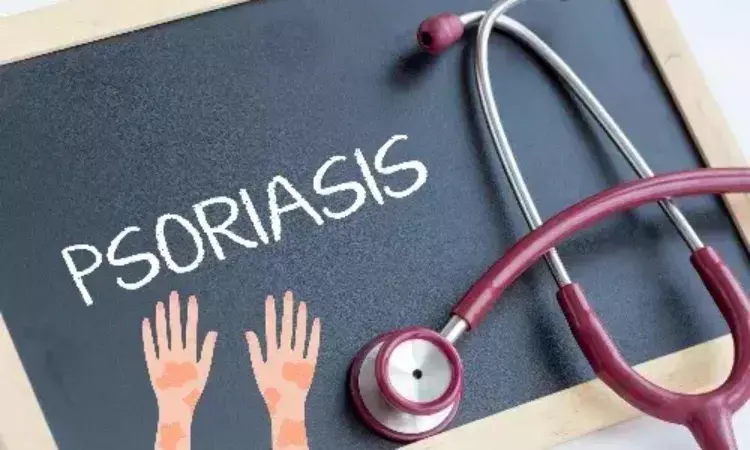- Home
- Medical news & Guidelines
- Anesthesiology
- Cardiology and CTVS
- Critical Care
- Dentistry
- Dermatology
- Diabetes and Endocrinology
- ENT
- Gastroenterology
- Medicine
- Nephrology
- Neurology
- Obstretics-Gynaecology
- Oncology
- Ophthalmology
- Orthopaedics
- Pediatrics-Neonatology
- Psychiatry
- Pulmonology
- Radiology
- Surgery
- Urology
- Laboratory Medicine
- Diet
- Nursing
- Paramedical
- Physiotherapy
- Health news
- Fact Check
- Bone Health Fact Check
- Brain Health Fact Check
- Cancer Related Fact Check
- Child Care Fact Check
- Dental and oral health fact check
- Diabetes and metabolic health fact check
- Diet and Nutrition Fact Check
- Eye and ENT Care Fact Check
- Fitness fact check
- Gut health fact check
- Heart health fact check
- Kidney health fact check
- Medical education fact check
- Men's health fact check
- Respiratory fact check
- Skin and hair care fact check
- Vaccine and Immunization fact check
- Women's health fact check
- AYUSH
- State News
- Andaman and Nicobar Islands
- Andhra Pradesh
- Arunachal Pradesh
- Assam
- Bihar
- Chandigarh
- Chattisgarh
- Dadra and Nagar Haveli
- Daman and Diu
- Delhi
- Goa
- Gujarat
- Haryana
- Himachal Pradesh
- Jammu & Kashmir
- Jharkhand
- Karnataka
- Kerala
- Ladakh
- Lakshadweep
- Madhya Pradesh
- Maharashtra
- Manipur
- Meghalaya
- Mizoram
- Nagaland
- Odisha
- Puducherry
- Punjab
- Rajasthan
- Sikkim
- Tamil Nadu
- Telangana
- Tripura
- Uttar Pradesh
- Uttrakhand
- West Bengal
- Medical Education
- Industry
Oral orismilast provides significant skin clearance in patients with moderate-to-severe psoriasis

USA: A first-generation immediate-release (IR) formulation of orismilast showed higher efficacy than a placebo in moderate-to-severe psoriasis patients at week 16 in a phase 2a trial. The oral PDE4 inhibitor orismilast significantly improved psoriasis skin clearance.
Orismilast-modified release (MR) was found to have similar pharmacokinetic (PK) properties and fewer gastrointestinal (GI) disorders than the IR formulation in healthy participants. The researchers noted that future development of orismilast will be based on the MR formulation.
The findings were presented during late-breaking sessions at the AAD (American Academy of Dermatology) 2023 Annual Meeting and subsequently published in the Journal of the European Academy of Dermatology and Venereology. It showed that nearly 50% of patients receiving a 40 mg pill dose achieved ≥90% skin clearance—suggesting a potentially new and highly potent agent in plaque psoriasis care.
Psoriasis is an inflammatory, chronic skin disease characterized by well-demarcated, scaly, erythematous plaques. Psoriasis pathogenesis is underpinned by the activation of the Th17 (T-helper 17) pathways. Still, many inflammatory cytokines, including interleukin (IL)-17A, IL-23, IL-22, IL-17F, and TNF-α (tumour necrosis factor-alpha), play a role despite advances in injectable biologics and topical treatments. There is a persistent unmet need for long-term oral therapy that is safe, effective, and convenient.
PDE4 (Phosphodiesterase 4) is an enzyme involved in regulating cAMP (cyclic adenosine monophosphate) signalling, which regulates inflammatory pathways. Oral PDE4 inhibitors, including roflumilast and apremilast, are applied for treating psoriasis and other chronic inflammatory diseases. At the same time, difamilast and crisaborole have been used for topical treatment of atopic dermatitis, and inhaled tanimilast is in phase 3 for COPD treatment. Orismilast is a high-potency PDE4 inhibitor with enhanced selectivity for PDE4B and PDE4D.
PDE4 inhibition is an established treatment target for chronic inflammatory diseases. Still, there is a need for further development of improved oral PDE4 inhibitors to improve the tolerability and efficacy of oral PDE4 inhibitors, which are linked with headache, diarrhoea, and nausea.
Against the above background, Richard B Warren, The University of Manchester, Manchester, UK, and colleagues examined the safety and efficacy of orismilast for psoriasis using a first-generation IR formulation. They also discussed the pharmacokinetic properties of orismilast MR and MR, food effects on PK properties of orismilast IR or MR, and the safety of orismilast MR versus placebo.
Patients with moderate-to-severe psoriasis were allocated to receive 30 mg oral orismilast IR or placebo over 16 weeks in phase 2a prospective, randomized, double-blind, placebo-controlled trial.
The single-site phase 1 trial comprised of three parts: (1) patients receiving a single 30 mg dose of orismilast IR and MR, (2) patients received 30 mg orismilast IR or MR under either fasting condition, following a high-fat or low-fat meal, and (3) participants received up to 60 mg orismilast MR twice-daily or a placebo for 17 days.
Key findings include:
- In the phase 2a trial, treatment with orismilast IR significantly improved the mean Psoriasis Area Severity Index score at week 16 compared to the placebo.
- The phase 1 trial revealed comparable PK properties of the orismilast MR and IR formulations. Participants in the orismilast MR group experienced fewer GI-related AEs than those receiving orismilast IR (16.7% versus 33.3%).
"Results from the phase 2a trial showed a statistically significant and clinically relevant improvement in the quality of life of patients treated with oral orismilast than the placebo group, with a placebo-subtracted 9.1-point improvement (3.8 versus 12.9), the researchers wrote.
They conclude, "the results from the present clinical trials indicate the potential of oral orismilast MR for treating multiple chronic inflammatory conditions, where the regulation of upstream inflammatory pathways by a potent PDE4 inhibitor would be beneficial."
Reference:
Warren RB, Strober B, Silverberg JI, Guttman E, Andres P, Felding J, Tutkunkardas D, Kjøller K, Sommer MOA, French LE. Oral orismilast: Efficacy and safety in moderate-to-severe psoriasis and development of modified release tablets. J Eur Acad Dermatol Venereol. 2023 Apr;37(4):711-720. doi: 10.1111/jdv.18812. Epub 2023 Jan 18. PMID: 36478476.
Dr Kamal Kant Kohli-MBBS, DTCD- a chest specialist with more than 30 years of practice and a flair for writing clinical articles, Dr Kamal Kant Kohli joined Medical Dialogues as a Chief Editor of Medical News. Besides writing articles, as an editor, he proofreads and verifies all the medical content published on Medical Dialogues including those coming from journals, studies,medical conferences,guidelines etc. Email: drkohli@medicaldialogues.in. Contact no. 011-43720751


